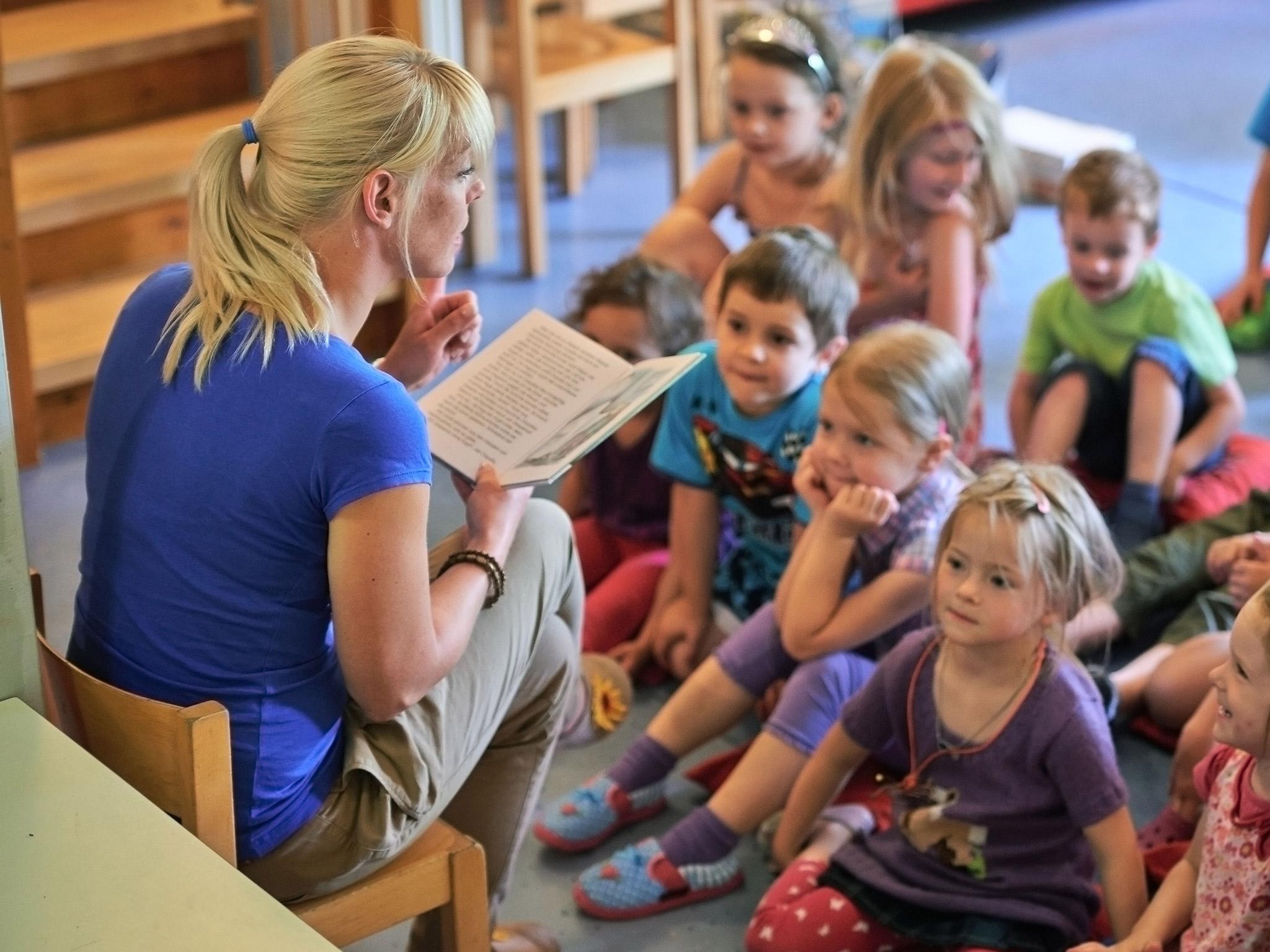Children better off at nursery than at home with parents, study finds
Nursery helps youngsters develop social and everyday skills, while staying at home can lead to poorer speech and movement, according to report

Your support helps us to tell the story
From reproductive rights to climate change to Big Tech, The Independent is on the ground when the story is developing. Whether it's investigating the financials of Elon Musk's pro-Trump PAC or producing our latest documentary, 'The A Word', which shines a light on the American women fighting for reproductive rights, we know how important it is to parse out the facts from the messaging.
At such a critical moment in US history, we need reporters on the ground. Your donation allows us to keep sending journalists to speak to both sides of the story.
The Independent is trusted by Americans across the entire political spectrum. And unlike many other quality news outlets, we choose not to lock Americans out of our reporting and analysis with paywalls. We believe quality journalism should be available to everyone, paid for by those who can afford it.
Your support makes all the difference.Young children are better off going to nursery than staying at home with a parent, according to new research.
A recent report suggests going to nursery is more beneficial for helping youngsters develop social and everyday skills, while by contrast staying at home can lead to poorer speech and movement.
The study, by researchers at the London school of Economics and Oxford University, found children aged between two and three tended to be more stimulated at nursery due to the interaction with new children and adults, which helped their development.
The research was based on a survey carried out among 800 German mothers, which asked about the progress of their children when they were aged two and three, as well as their education and financial status.
It asked questions such as “Can your child cut pieces of paper with scissors?” or “Can your child speak in two-word sentences?” in order to assess how well children were developing.
The researchers concluded that singing children’s songs and painting and doing arts and crafts were found to have a positive impact on dexterity, which researchers linked to the actions associated with songs and the hand skills needed for arts and crafts.
Reading or telling stories, singing children’s songs and visiting other families were unsurprisingly also both found to have a positive impact on talking capabilities.
The researchers also examined the effect of certain activities on young children. Reading and shopping were found to make them happiest, while reading or telling stories and singing children’s songs were found to have a positive impact on talking capabilities.
Singing children’s songs and painting and doing arts and crafts - all activities common in nursery school - were found to have a positive impact on the development of movement skills, which researchers linked to the actions associated with songs and the hand skills needed for arts and crafts.
Taking walks outdoors was meanwhile negatively associated with movement skills, which is surprising but the authors suggested it may be because it often means children spending long periods in a pushchair.
As well as the benefit to development from attending nursery, the research also found that spending more hours being cared for by grandparents was associated with better talking and social skills
Professor Paul Anand, one of the authors of the report and a professor of Economics at the LSE, said: ‘We are delighted that one of first economic studies to look at the behaviour of very young children comes out with positive messages about activity involvement with parents, and shows that different activities promote different skills."
Join our commenting forum
Join thought-provoking conversations, follow other Independent readers and see their replies
Comments